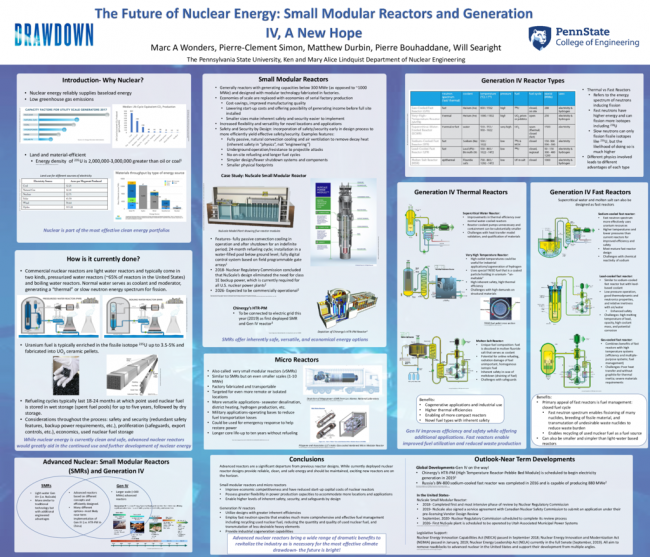As climate change threatens to dramatically change the global landscape, the negative human impact on the environment must be reduced. Electricity production, through the burning of fossil fuels, is a major contributor to human-induced climate. This situation along with increasing energy demands motivates a massive shift to alternative carbon-free energy sources. Nuclear energy is currently the largest, most efficient, and most reliable source of such energy and must be a significant part of any clean energy portfolio if the necessary reduction of carbon emissions is to take place. Nonetheless, nuclear energy is not without its challenges including economic difficulties in some cases, the disposal of used nuclear fuel, the potential consequences of reactor accidents or sabotage, and weapons proliferation concerns. While the currently deployed nuclear reactor fleet already addresses these in effective ways and should be maintained, innovative nuclear designs better address these difficulties and would greatly facilitate the inclusion of nuclear energy in modern clean energy plans. Such reactors are currently under development as small modular reactors (SMRs) and Gen IV reactors. These innovative reactors change the paradigm of nuclear energy production. They offer lower initial capital costs in their construction, considerable reduction and reusability of used nuclear fuel, and inherent safety and security by design. Moreover, their versatile designs offer diverse possible applications, such as water desalination and hydrogen production, among others. This work describes these new reactors, their benefits, and how they can contribute to a safe, efficient, and clean energy future to reverse climate change.
Day
Monday Poster Session
Related Conference Themes
Electricity Generation


